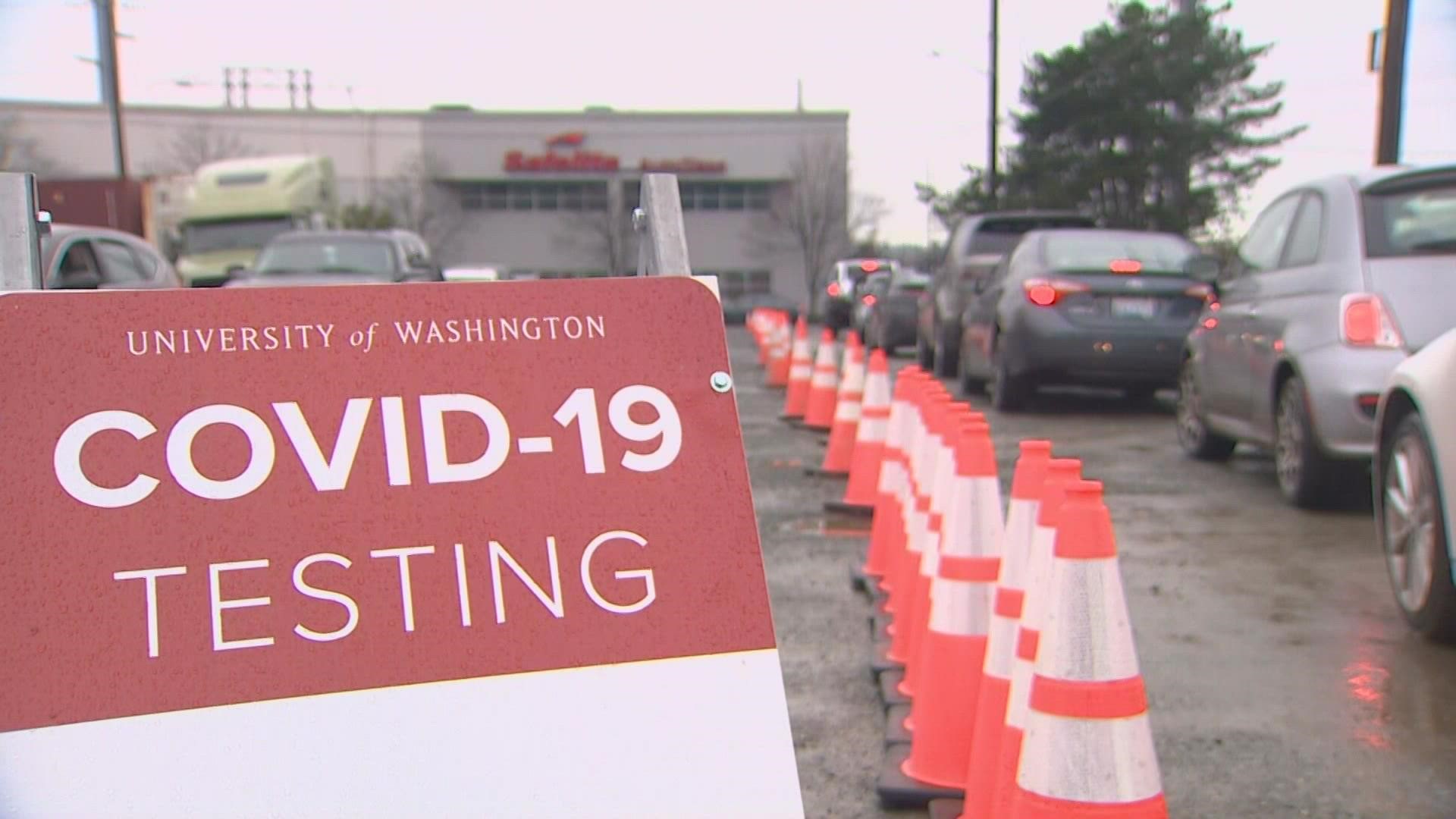INDIANAPOLIS — As parties commence days before Christmas, two variants will likely force their way into our holiday festivities this year.
On Monday, federal health officials said omicron is now the dominant version of the coronavirus in the U.S., accounting for 73% of new infections last week. The World Health Organization designated omicron as the fifth variant of concern in November 2021.
Since then, new studies released from areas where omicron first appeared are giving glimpses into how the variant attacks the body.
Preliminary labs suggest the omicron variant may not attack the upper respiratory system in the same way others do, so symptoms could manifest differently.
Some United Kingdom estimates found the omicron variant was 25-50% more transmissible than other variants.
Preliminary data from the ZOE COVID Symptom Study app, a UK based epidemiological research app which collects data on people's symptoms, shows cold-like symptoms were prevalent in people who tested positive for omicron.
The top five symptoms reported in the ZOE app were:
Runny nose
Headache
Fatigue (either mild or severe)
Sneezing
Sore throat
Experts say that even without Omicron, COVID infections are going through a “winter surge.”
Currently, there is an average of 83,000 new COVID cases in the U.S. every day, with 61% of the population vaccinated.
In Indiana, which one study named the least safe state in the country for COVID-19, the number is lower. Only 51.7% of the population is fully vaccinated.
Hospitalizations of people being treated for COVID-19 have increased 150% in Indiana in just over five weeks.
“The numbers I am seeing for ICU bed availability across Indiana are scary,” Dr. Graham Carlos, executive medical director at Eskenazi Health, told 13News last week.
This is causing many hospitals, like Eskenazi, to turn away incoming patients.
“Every day or every other day, hospitals are on and off diversion. As they are able to get patients discharged, quickly new patients fill right back in,” Carlos said.
IU Health requested help from the Indiana National Guard for nearly all of its hospitals. Currently, teams are supporting 13 of the 16 hospitals.
On Sunday, Indiana received the first confirmed case of the omicron variant in the state. The Indiana State Department of Health announced it was found in a specimen collected from an unvaccinated Indiana resident.
The variant was verified through the ISDH Laboratories’ variant surveillance program, according to a news release.
The sample was collected Dec. 9, and omicron was detected in the sample this weekend after sequencing was conducted.
There have been more than 50.84 million confirmed cases of COVID-19 in the United States as of 1:30 a.m. Monday, according to Johns Hopkins University. There have been more than 806,400 deaths recorded in the U.S.
Worldwide, there have been more than 274.7 million confirmed coronavirus cases with more than 5.35 million deaths and more than 8.68 billion vaccine doses administered worldwide.
The White House's top medical adviser said the COVID-19 omicron variant is “just raging around the world."
Dr. Anthony Fauci, the country's leading infectious disease expert, told NBC’s “Meet the Press” that “the real problem” for the U.S. hospital system is that “we have so many people in this country who are eligible to be vaccinated who have not yet been vaccinated.”
On Tuesday, Dec. 21, President Joe Biden is planning to give what his press secretary says is “a stark warning of what the winter will look like” for unvaccinated Americans.

